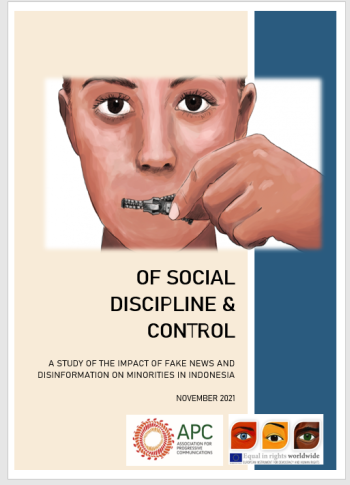
Recent scholarship on disinformation points to a range of adverse effects on society, including its potential to fragment institutions and incite violence. Despite this, little research has investigated the stratified effects of fake news in society – particularly on how minorities are disproportionately victimized by the problem.
This study sets out to analyse the qualitative impact of fake news on racial, ethnic and sexual minority communities in Indonesia. Indonesia presents an interesting case, given how the impact of disinformation in the country has been particularly pronounced. Not only has the rampant spread of disinformation extensively impinged on the integrity of the Jakarta gubernatorial elections in 2017 and the presidential elections in 2019, it has also been implicated in both longstanding ethno-religious violence and discrimination against minority groups. This study investigates three research questions: first, what disinformation campaigns affecting minority groups have emerged in Indonesia? Next, how have these campaigns influenced and shaped social behavior of minorities? Lastly, how is the state implicated in the problem, and to what extent are state responses considered adequate? To address these questions, this study draws on primary data collected through interviews with Indonesian citizens belonging to major minority groups.
Key findings
-
The findings reveal the disproportionate impact fake news has on minority communities in Indonesia, including psychological stress, economic damage, sexual and physical violence and harm.
-
It sheds light on how fake news has been weaponised by hegemonic groups in society to both amass various forms of political and religious capital, as well as to socially control and discipline minority groups.
-
Furthermore, it shows how the state is implicated in the problem through biased and politicised policing of fake news.
-
Given that the proliferation of fake news is facilitated through modern social media platforms, increased state regulation towards these platforms has the potential to curb the worst effects of disinformation and create a healthier public sphere.
-
More than delegating the resolution of the problem to the government however, it is also important that ground-up solutions – especially educational efforts to both raise awareness of fake news, as well as the phenomenon of how fake new is being instrumentalised politically – are advanced.